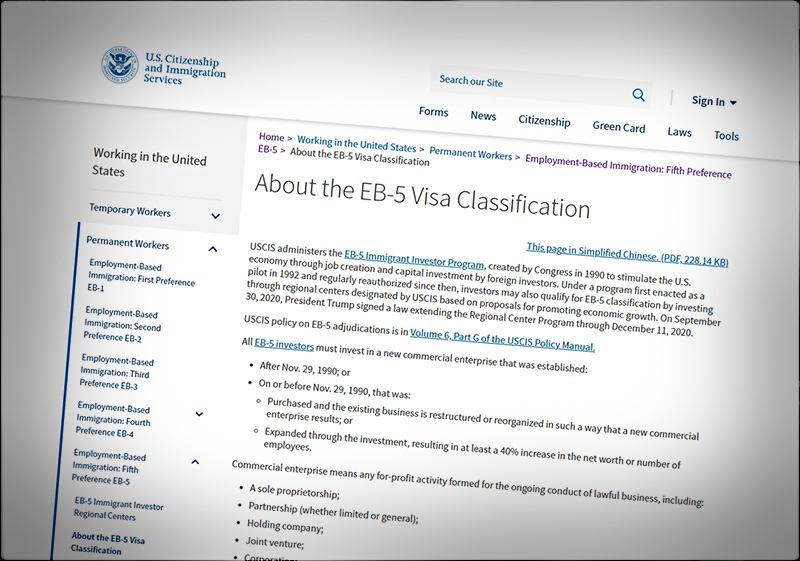
Today’s collection of stories includes an EB-5 alien pleading guilty to illegally selling equipment to the Chinese military, and a couple of more routine instances of illegal financial misbehavior by citizen middlemen or corporations.
Rarely do aliens who have used the EB-5 program to secure green cards get hauled into court; it is usually U.S.-based individuals and corporations who are caught cheating the aliens, not the other way around.
The latest development in the slow-moving case against Shuren Qin, a native of China, was that this EB-5 beneficiary pleaded guilty to a federal charge of “illegally procuring and causing the illegal export of $100,000 worth of U.S. origin goods ... [to an entity] that is heavily involved in military research”, according to a Justice Department press release.
Qin, who arrived in the States via the EB-5 program in 2014, engaged in an export business, according our own reporting in 2018; the indictment said he "had exported or caused to be exported, among other things, remotely operated side scan sonar systems, unmanned underwater vehicles, unmanned surface vehicles, robotic boats and hydrophones."
You are not supposed to do this kind of thing without getting a federal license; he failed to do so. The recipient of the equipment was Northwestern Polytechnic University, a Chinese institution said to be the research arm of what was called in earlier documents the People’s Liberation Army’s Navy.
Their NPU is in Xi'an, China (home of the tera cotta warriors) and is not to be confused with California’s institution of the same name, another entity run by people of Chinese ancestry, and certainly the most prosperous of the visa mills, as noted earlier.
Qin’s pleading reminded me of a conversation I had with a federal investigator recently; he said that many criminal cases brought against aliens are not, as so often happens with citizens, pleaded out, on the grounds that a conviction may well lead to deportation. This causes some cases to go to trial that would be settled in other ways were citizens involved. The deportation process is handled by DHS, not the courts, and whether Qin will be deported is not yet known.
Domestic Matters. Turning from admitted spying to alleged financial mismanagement, we have two recent cases that involved charges that U.S.-based middlemen, who apparently had mishandled EB-5 funds, are now seeking to reduce their penalties.
The more convoluted of the two involves an aspect of the numerous Vermont EB-5 scandals that revolved around the elaborate schemes of Ariel Quiros (who has also pleaded guilty). These cases, often involving ski resorts, drew so much negative press that Sen. Patrick Leahy (D-Vt.), once the champion of the EB-5 program, has become one of its sharpest critics.
In one of the earlier settlements in this case, the brokerage house Raymond James, which had put some of the EB-5 money in Quiros’s margin account, a no-no, coughed up $144.5 million, a sum that seemed out of all proportion to any profits it could have made from its dealings with Quiros. The firm obviously wanted the bad publicity to go away.
More recently, Raymond James is seeking to claw back some of its losses by suing a law firm used by Quiros in some of his dealings, according to an account in Law360.
Speaking of stiff penalties, in a Florida case, in which EB-5 investors were said to have been duped out of $100 million, the defendant, Nicholas A Mastroianni II, urged the presiding federal judge to “toss several counts, including a claim for civil theft that could carry treble damages.”
Life continues to be interesting in the EB-5 world.
